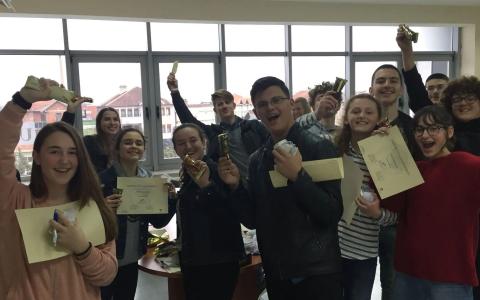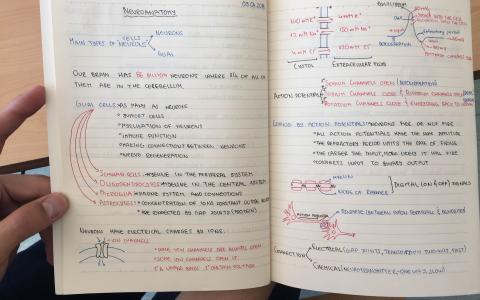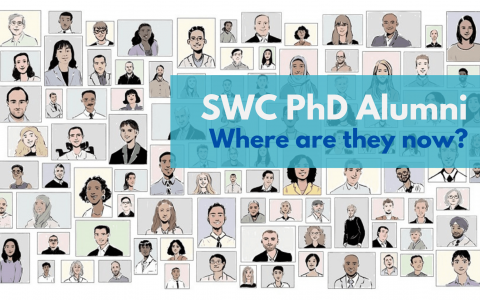
From PhD to PI: a neuroscientist’s mission to map environmental stressors
An interview with Dr Egzona Morina, Principal Investigator of Environmental Neuroscience Research Incubator (ENRI) at The Xheladin and Xhufe Morina Foundation and former SWC PhD student, conducted by April Cashin-Garbutt
After completing her PhD at the Sainsbury Wellcome Centre, Dr Egzona Morina has carved out a unique and inspiring career path that bridges neuroscience, environmental health, and community impact. In this Q&A, Egzona shares her journey – from navigating uncertainty post-PhD to founding a research incubator and developing innovative educational initiatives in Kosovo.
How did you decide what to do after your PhD at SWC and what has your journey been like so far?
Honestly, I didn’t decide! I wish I could say it was a clear path, but it wasn’t. After my PhD, I moved to Boston and spent a year trying to figure out what I wanted to do. I applied to loads of jobs and got rejected from all of them. It felt like even jobs I hadn’t applied to were sending me rejection letters!
Eventually, I took up a postdoc position at MIT in digital learning, which aligned with my interest in education and my nonprofit work. That experience, combined with conversations with colleagues at the MIT Energy Initiative around climate science and environmental health, sparked a new interest: how environmental stressors like air pollution, noise, and heat affect the brain. That curiosity led me to start building my own research programme in environmental neuroscience.
What does your current role involve?
I’m now the Principal Investigator of the Environmental Neuroscience Research Incubator (ENRI), which I founded under my nonprofit – The Xheladin and Xhufe Morina Foundation. I’ve just received Institutional Review Board (IRB) approval in Boston, which is required to conduct research using human participants. I’m also currently finalising IRB approval in Pristina in Kosovo.
The work is incredibly hands-on and self-driven. I’m designing experiments to test how heat, noise, and air pollution affect cognitive performance using EEG and behavioural tasks. In addition to designing studies, I am applying for grants and setting up lab spaces. I’m pleased to have secured a small grant to start collecting data.
What are the main areas of research you now focus on?
I’m focused on how environmental stressors – specifically air pollution, noise, and heat – impact brain function. Participants wear silicone wristbands that passively absorb pollutants, and then complete cognitive tasks under different environmental conditions. I’m running the same study in Boston and Pristina to compare data across contexts.
Ultimately, I want to build predictive models using machine learning to estimate how these stressors affect mood, focus, and cognition. The goal is to make invisible environmental stressors visible, and actionable, for policymakers, educators, and urban planners.
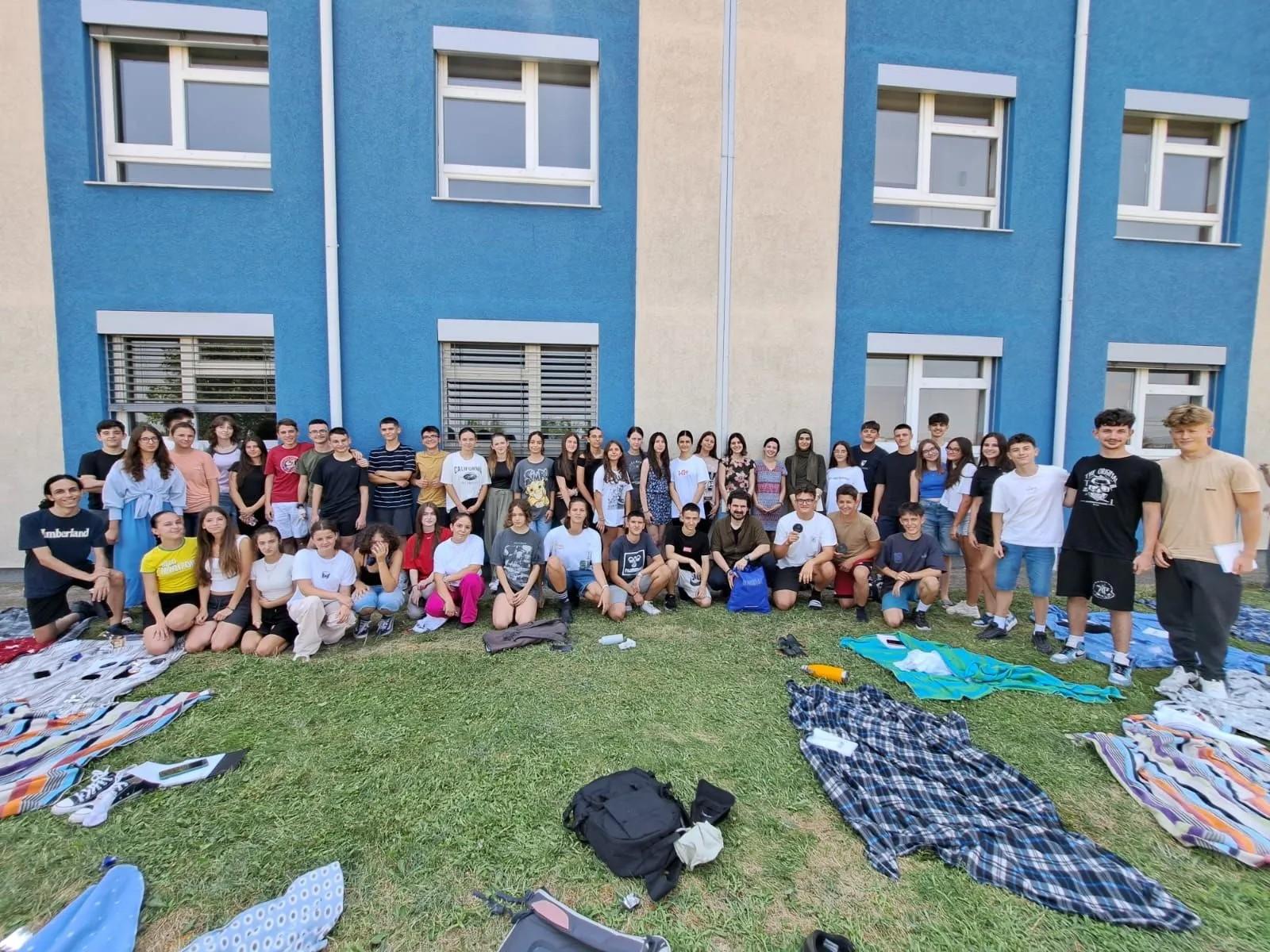
Students attending BrainCamp Kosovo 2018.
Can you tell us more about the other projects you are involved in outside of your day-to-day role – particularly BrainCamp Kosovo and the children’s book you developed?
BrainCamp Kosovo is a neuroscience education programme I run through my nonprofit. It started in 2018 while I was at SWC and has grown each year. Since the beginning, we have partnered with the ATOMI Institute, an organisation in Kosovo that supports students with extraordinary potential.
SWC has kindly supported us from the start too and each year SWC staff and students come to Kosovo to help teach the course. We also now partner with the Innovation Centre Kosovo to reach a broader audience, including students from over 30 schools.
As part of this work, I also developed a children’s book called The BrainBook, which uses augmented reality to teach kids about the brain. The illustrations come to life through an app, and the content adapts to different age groups and languages. It’s available in English, Albanian, Italian, and Ukrainian. All proceeds go back into the foundation to support our mission to advance STEM education in Kosovo.
How did your PhD help equip you with the skills and knowledge needed for your chosen career path?
The PhD at SWC taught me how to think critically, how to structure problems, and how to keep going when things don’t work out. But more than that, it taught me resilience. I realised that many of the pressures I felt were self-imposed. Once I let go of comparing myself to others, I found clarity in what I wanted to do. That reflection has been invaluable in shaping how I now approach research and life.
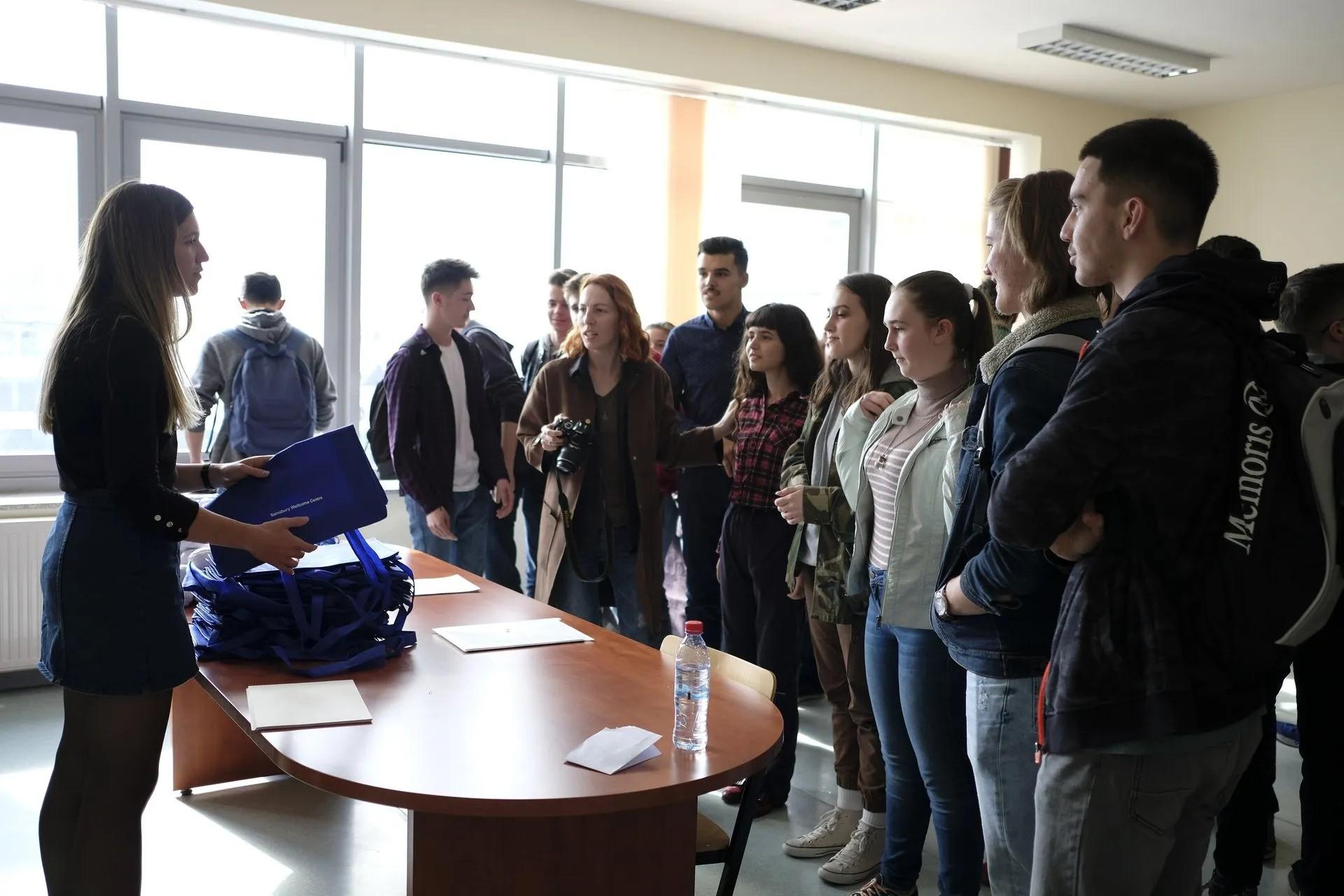
Egzona giving out SWC bags to students completing BrainCamp Kosovo 2018 course.
Before you started your PhD, did you always want to start a nonprofit?
Not at all. I never imagined that I’d start a nonprofit. It came from a deeply personal place – the grief of losing my father. The foundation, which is named after my parents, became a way to channel that emotion into something meaningful. I was also really inspired by the ATOMI students – particularly the first student we gave a scholarship to.
Looking back, what would you say was the most important thing you learnt during your PhD?
I wish I could go back and tell myself that everything will be okay! I was so caught up in doing everything perfectly, in proving myself. But in the end, the most valuable thing I learned was to trust my own timeline and to be kind to myself.
Have you stayed in touch with many people at SWC and GCNU?
Yes, and I’m incredibly grateful for the continued support from SWC. The Director Tom Mrsic-Flogel, Chief Scientific Officer Tom Otis, Robb Barrett in the FabLab, Karen Fergus in the PS team and many others (including yourself April!) have been so generous with their time and help – even years after I left.
What are your future career plans?
I’d love to expand ENRI into a full research institute with labs in both Boston and Pristina. I want to employ local researchers, build a sustainable scientific community, and tailor everything to the local context – not impose a model from abroad. I also want to keep developing educational programmes from early childhood through to graduate level.
What advice would you give to someone deciding what to do following a PhD in neuroscience?
Be brutally honest with yourself about what makes you happy. Don’t be afraid to take an unconventional path. Whether you want to open an art gallery or start a nonprofit, your PhD has equipped you with the skills to figure it out. Just trust your own journey.
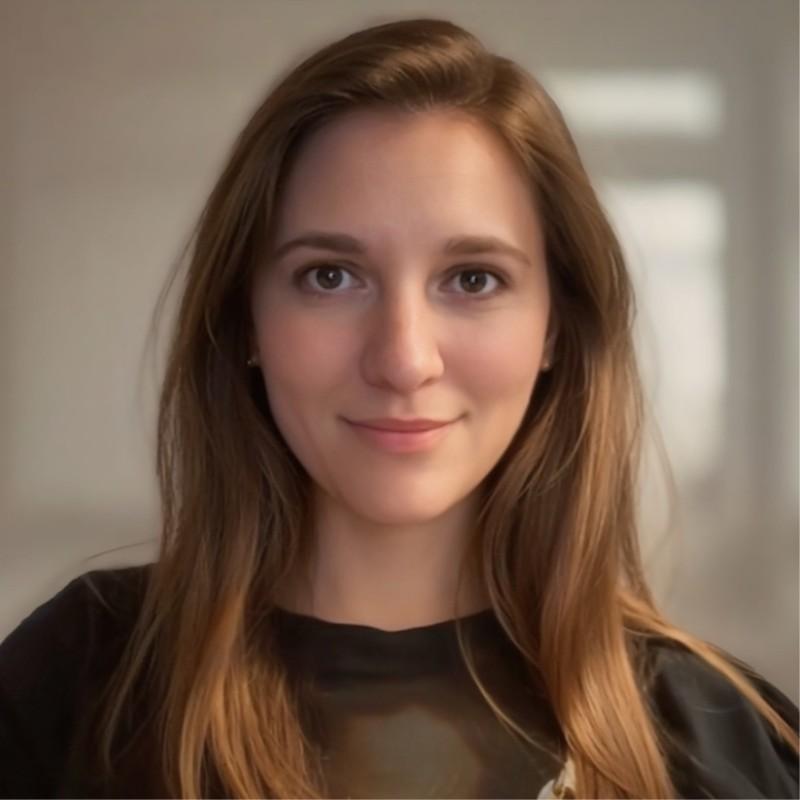
About Egzona Morina
Dr. Morina earned her PhD in Neuroscience from the Sainsbury Wellcome Centre at University College London (UCL). She completed her postdoctoral research at the Massachusetts Institute of Technology (MIT) and is currently the director and principal investigator of the Environmental Neuroscience Research Incubator (ENRI).
